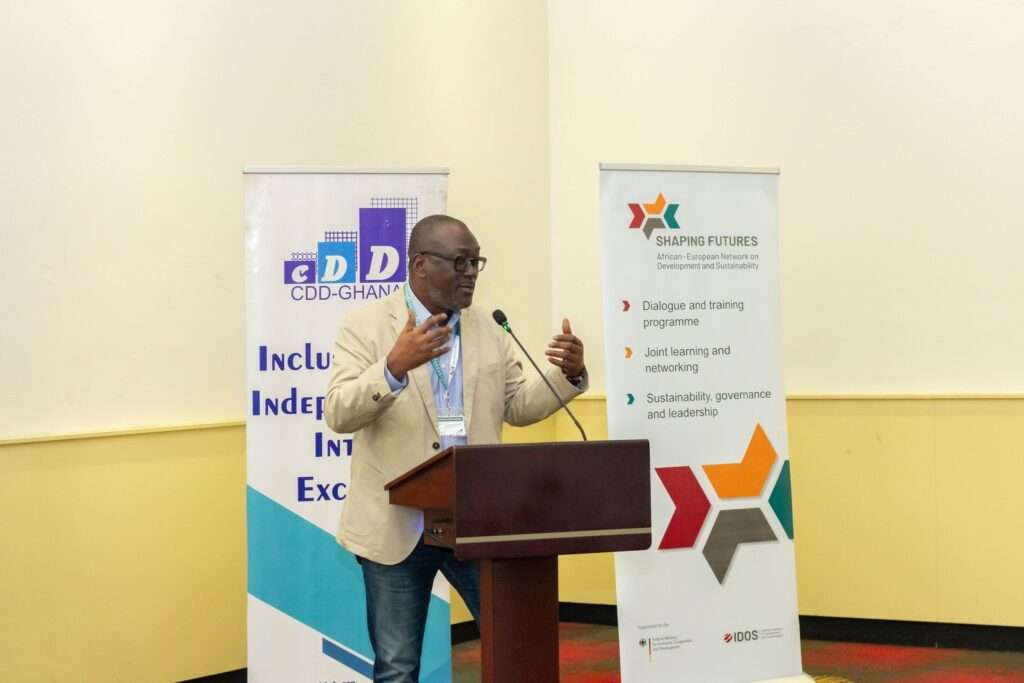In a move signalling mounting calls for sweeping judicial reforms, Osagyefo Mawuse Oliver Barker-Vormawor, a constitutional activist and Lead Convenor of the Democracy Accountability Hub has laid out a comprehensive legislative agenda aimed at restructuring Ghana’s judicial system.
His proposals targeted perceived systemic abuses and inefficiencies within the judiciary and legal education sectors, with an emphasis on limiting the powers of the Chief Justice and reimagining the General Legal Council’s role.
Barker-Vormawor’s ten-point plan underscored a profound dissatisfaction with current judicial practices. Central to his recommendations is the call for legislative measures that would “Take away the Chief Justice’s self-proclaimed empanelling powers.
He also argued that the Chief Justice’s responsibility for transferring judges should instead rest with the Judicial Council, ensuring checks against unilateral decisions that could compromise the integrity of court proceedings.
“The abuse is too much,” Barker-Vormawor wrote, voicing strong opposition to what he perceived as the over-centralization of power within the judiciary’s top echelon.
Transforming Legal Oversight and Education
Barker-Vormawor’s vision for reform extended to the composition and mandate of the Judicial Council itself. He proposed a restructuring that would recalibrate its membership and redefine its jurisdiction, fostering a system more resistant to undue influence.
In a sharp critique of the General Legal Council (GLC), he called for the complete removal of judges from its ranks, asserting that their focus should remain in the courtroom to avoid conflicts of interest.

Additionally, he suggested detaching the administration of the Ghana School of Law from the General Legal Council, pushing for it to become an independent institution. This move, he contended, would enhance educational autonomy and potentially lead to the diversification of legal training pathways.
Barker-Vormawor, who served as a Constitutional Researcher and the Access to Justice Advisor to Ghana’s 2010/11 Constitution Review Commission, strongly advoacted for legislation that would permit public and private universities to establish their own professional schools of law.
He argued that such competition would democratize access to legal education and better prepare aspiring lawyers for the bar.
Professional and Disciplinary Reforms
Further, Oliver Barker-Vormawor’s legislative blueprint proposed the creation of a Board of Legal Education tasked with conducting Professional Bar Exams twice a year. This would streamline and standardize the path to qualification, addressing long-standing criticisms of the current system’s rigidity and opacity.
He also suggested dissolving the GLC’s Disciplinary Committee, shifting oversight of professional misconduct to bar associations and civil litigation under tort law.
In a significant departure from traditional practice, Barker-Vormawor advocated for the abolition of mandatory pupillage requirements for newly qualified lawyers, asserting that such mandates stifle professional growth and impose unnecessary barriers to entry into the legal field.
To cap his extensive list, he called for codified trial rules for contempt ex facie curiae—out-of-court contempt—to prevent arbitrary and potentially punitive judicial decisions.
Supporting Reform: Professor Prempeh’s Additional Perspective
Echoing Oliver Barker-Vormawor’s proposals, Professor H. Kwesi Prempeh, Executive Director of the Centre for Democratic Development (CDD-Ghana), underscored the need for such reforms, advocating for structural changes to prevent unchecked growth in the superior court system.
Professor H. Kwesi Prempeh supported the reformist tone set by Barker-Vormawor, proposing his own legislative addition.
He emphasized the need for a statutory cap on the number of justices in the superior courts, arguing that this measure would curb any tendencies toward disproportionate expansion that could impact judicial efficiency and fairness.

He also recommended instituting a transparent mechanism to guide any future increases in the number of justices, outlining the grounds and processes for such decisions to be made.
The proposals set forth by Osagyefo Mawuse Oliver Barker-Vormawor and endorsed by Professor Prempeh underscore a growing call for a judicial system that prioritizes accountability, fairness, and structural balance.
Should these recommendations be pursued by future administrations or the next Attorney-General, they could reshape the legal and judicial landscape in Ghana, signalling a new chapter in the nation’s approach to justice and governance.
READ ALSO: Ghana Launches $227.5 Million Tree Crop Diversification Project to Boost Agricultural Sector



















